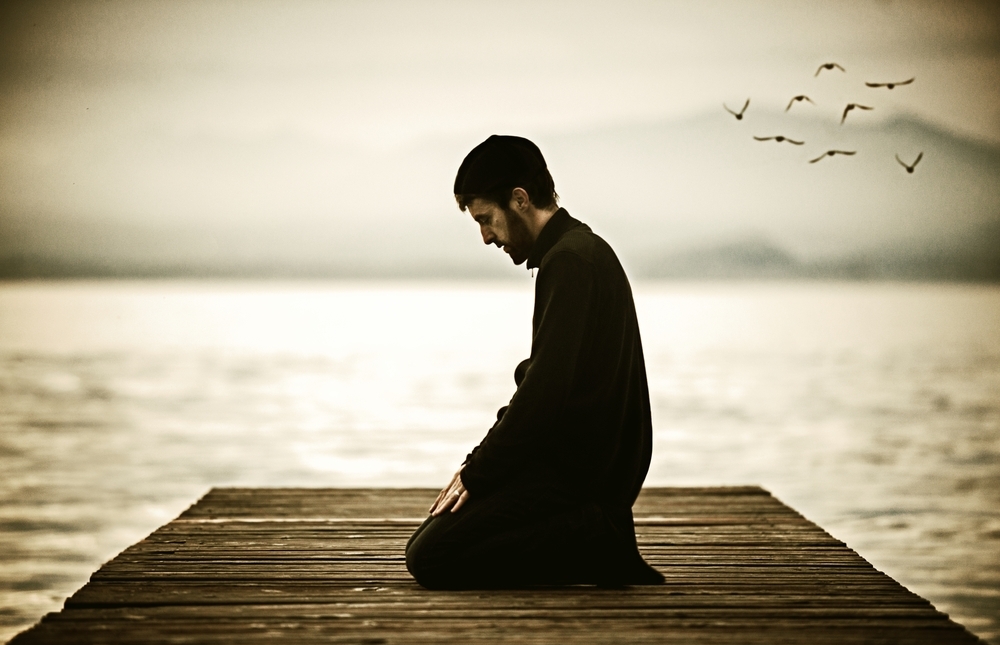Must I Make Up All My Prayers as a Hanafi or Take the Opinion of Ibn Taymiyya?
Hanafi Fiqh
Answered by Shaykh Yusuf Weltch
Question
So, recently I found out that I’ve been praying wrong all the time. I‘ve been praying by just reciting one verse after Surat al-Fatiha, and I constantly made dua in my own language in sujud.
I‘ve been just crying since I’ve figured this out. I have to repeat all my prayers again, and now I’m so paranoid about praying because I’m scared I’ll again make a mistake that will invalidate my Salah.
Ibn Taymiyyah held that when a person neglects one of the obligations or pillars out of ignorance, he is not required to repeat the past invalid acts of worship.
But the Hanafi view says that one has to repeat all his prayers. Would it be okay if I follow the view of Ibn Taymiyyah even though I’m Hanafi? Can I follow his view?
Answer
In the Name of Allah, the Most Merciful and Compassionate.
It is not a requirement for you to make up such prayers as there are secondary opinions within the Hanafi school that can be used in urgent scenarios such as relieving people of years of make-up prayers.
Obligatory and Necessary Recitation
It is obligatory in the prayer to recite at least one verse in any two units of the obligatory prayer. It is necessary to recite Surat al-Fatiha and another set of verses (a minimum of three small verses or one long verse of the same length). [Ibn ‘Abidin, Radd al-Muhtar]
If the obligatory level is performed and the necessary level is left – it is necessary for one to perform the prostration of forgetfulness. If this is not done, one is required to repeat the prayer whether the prayer time expired or not. [Ibid.]
However, if the prayer time did expire and the prayer was not made up (as is the case in your question), a secondary opinion says it is merely recommended to repeat such a prayer after the expiration of the time. [Ibid.]
According to the secondary opinion you are not required to make up your past prayers even though you abandoned the necessary level of recitation. [Ibid.]
Supplicating in a Language Other than Arabic
It is an obligation to use Arabic in all the actions of the prayer according to the relied-upon position – that is, unless one is unable to do so, such as a new Muslim. [Ibid.]
If one performed the recitation of the Quran in the prayer in Arabic but made supplications in other languages — according to a secondary opinion, the prayer does not need to be made up. [Ibid.]
Hope this helps
Allah knows best
[Shaykh] Yusuf Weltch
Checked and Approved by Shaykh Faraz Rabbani
Shaykh Yusuf Weltch teaches Arabic, Islamic law, and spirituality. After accepting Islam in 2008, he completed four years at the Darul Uloom Seminary in New York, where he studied Arabic and the traditional sciences.
He then traveled to Tarim, Yemen, where he studied for three years in Dar al-Mustafa under some of the most outstanding scholars of our time, including Habib Umar Bin Hafiz, Habib Kadhim al-Saqqaf, and Shaykh Umar al-Khatib.
In Tarim, Shaykh Yusuf completed the memorization of the Quran and studied beliefs, legal methodology, hadith methodology, Quranic exegesis, Islamic history, and several texts on spirituality. He joined the SeekersGuidance faculty in the summer of 2019.
